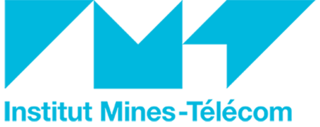Related Research Articles
Modern telecommunications in Thailand began in 1875 with the deployment of the first telegraph service. Historically, the development of telecommunication networks in Thailand were in the hands of the public sector. Government organisations were established to provide telegraph, telephone, radio, and television services, and other government agencies, especially the military, still control a large estate of radio and television spectra. Private telecommunication operators initially acquired concession agreements with state enterprises. For mobile phone services, all the concessions have been amended by successive government to last 25 years have gradually ended in 2015. For other services, the concession terms and conditions vary, ranging from one to fifteen years. Nearly all of the concessions are build-operate-transfer (BTO) contracts. The private investor has to build all the required facilities and transfer them to the state before they can operate or offer services to public.

The Nippon Telegraph and Telephone Corporation (NTT) is a Japanese telecommunications holding company headquartered in Tokyo, Japan. Ranked 55th in Fortune Global 500, NTT is the fourth largest telecommunications company in the world in terms of revenue, as well as the third largest publicly traded company in Japan after Toyota and Sony, as of June 2022.
Innovation, Science and Economic Development Canada is a department of the Government of Canada. ISED is responsible for a number of the federal government's functions in regulating industry and commerce, promoting science and innovation, and supporting economic development. The department was known as Industry Canada (IC) prior to 2015.

King Mongkut's Institute of Technology Ladkrabang is a research and educational institution in Thailand. It is situated in Lat Krabang District, Bangkok approximately 30 km east of the city center. The university consists of nine faculties: engineering, architecture, science, industrial education and technology, agricultural technology, information technology, food industry, liberal arts, and medicine.

The Deutsche Bundespost was a German state-run postal service and telecommunications business founded in 1947. It was initially the second largest federal employer during its time. After staff reductions in the 1980s, the staff was reduced to roughly 543,200 employees in 1985. The corporation was dissolved in 1995 under two rounds of postal reforms that took place in the German Post Office in 1989 and 1995, respectively. Following the reforms, the former Deutsche Bundespost was broken into three publicly traded corporations: Deutsche Post AG, Deutsche Telekom, and Deutsche Postbank AG.

Satyanarayan Gangaram Pitroda, also known as Sam Pitroda is an Indian telecommunication engineer and entrepreneur. He was born in Titlagarh in the eastern Indian state of Odisha to a Gujarati family. He was also an advisor to the PM during Dr. Manmohan Singh's tenure and for United Nations.
Eswatini Posts and Telecommunications Corporation is a Eswatini (Swaziland) company that provides the two services under one corporate umbrella. The company, known as EPTC, is divided into four units: Eswatini Post, Eswatini Telecom, PhutfumaniCouriers and National Contact Centre (NCC). The EPTC is a parastatal company and is responsible to the Ministry of Information, Communications and Technology. Eswatini Mobile and MTN Eswatini, a subsidiary of MTN Telecom in South Africa, are competitors to the company.

Innovation Centre Denmark is a governmental agency that assists Danish businesses, startups and research institutions with access to international knowledge and innovation environments.

The Ministry of Industry and Information Technology (MIIT) is the sixth-ranked executive department of the State Council of the People's Republic of China. It is responsible for regulation and development of the postal service, Internet, wireless, broadcasting, communications, production of electronic and information goods, software industry and the promotion of the national knowledge economy.

Institut Mines-Télécom (IMT) is a French public academic institution dedicated to Higher Education and Research for Innovation in the fields of engineering and digital technology, organized as a Collegiate University. Created in 1996, it was originally known as the "Groupe des écoles des télécommunications", or GET, followed by the "Institut Télécom". The Mines schools, which were placed under the administrative supervision of the Ministry of Industry, joined the Institut in March 2012 when it took on its current name and gained the status of Grand établissement. It combines high academic and scientific legitimacy with a practical proximity to business and a unique positioning in 3 major transformations of the 21st century: Digital Affairs, Energy and Ecology, and Industry. Its training and research for innovation are rolled out in the Mines and Télécom Graduate Schools. The Institut falls under the administrative aegis of the General Council for the Economy, Industry, Energy and Technologies.

Internet in Afghanistan is available in all of its 34 provinces, and is used by over 9 million people as of 2022. The internet officially became available in 2002 during the presidency of Hamid Karzai. Prior to that year, it was prohibited because the Islamic Emirate of Afghanistan believed that it may be used to broadcast obscene, immoral and anti-Islamic material, and because the few internet users at the time could not be easily monitored as they obtained their telephone lines from neighboring Pakistan.
Macquarie Technology Group Limited is an Australian cloud, data centre, government cyber security and telecom company, with offices in Sydney, Melbourne, Canberra, Brisbane and Perth. It owns and operates five data centers in Sydney and Canberra.
The Ministry of Information Technology and Telecommunication, abbreviated as MoITT) is a Cabinet-level ministry of the Government of Pakistan concerned with Information Technology and Telecommunications.
Information technology in Pakistan is a growing industry that has the potential to expand more in the future. Matters relating to the IT industry are overseen by the Ministry of Information Technology of the Government of Pakistan. The IT industry is regarded as a successful sector of Pakistan economically, even during financial crisis. The first IT policy and implementation strategy was approved under the leadership of Atta-ur-Rahman, the Federal Minister of Science and Technology in August 2000 which laid the foundations of the development of this sector. The emphasis was placed on quality IT education in universities rather than numbers during this period. The quality measures introduced by Atta-ur-Rahman as Chairman of Higher Education Commission during 2002-2008 included:1) All PhD thesis were evaluated by eminent foreign scientists,2) All PhD thesis and research papers were checked for plagiarism 3) Some 11,000 students were sent abroad to leading universities for PhD level training and absorbed on their return, 4) Appointments at faculty positions were linked to international stature of the applicants as judged from their international publications, patents and citations, and (5) Quality Enhancement Cells were established in all universities for the first time in the history of the country. Thereafter two policies were launched by the Ministry of IT under the leadership of Anusha Rahman Khan, Federal Minister for IT and Telecom (2013-2018). The Telecom Policy was announced in December 2015, and later National Digital Pakistan Policy that was approved by the cabinet in May 2018. In 2001, a 15 year tax holiday was approved to promote the IT industry which has the grown from $30 million to over $3 billion during the last 16 years. A nationwide programme to train teachers was initiated by Intel in March 2002 in Pakistan on the request of Atta-ur-Rahman which has resulted in the training of 220,000 teachers across 70 districts at no cost to the government. The government of Pakistan has given incentives to IT investors in the country during the last decade, this resulted in the development of the IT sector. From 2003 to 2005, the country's IT exports saw a rise of about fifty percent and amounted a total of about 48.5 million USD. The World Economic Forum, assessing the development of Information and Communication Technology in the country ranked Pakistan 111th among 144 countries in the Global Information Technology report of 2014. In an analysis of scientific research productivity of Pakistan, in comparison to Brazil, Russia, India and China, Thomson Reuters has applauded the developments that have taken place as a result of the reforms introduced by Atta-ur-Rahman, since Pakistan has emerged as the country with the highest increase in the percentage of highly cited papers in comparison to the "BRIC" countries. Atta-ur-Rahman is Co-Chairman of the Prime Ministers Task Force on Information Technology and Telecommunications. As a result of the measures introduced on the recommendation of the Task Force, there has been a sharp increase in software exports of Pakistan.

The Ministry of Business, Innovation and Employment is the public service department of New Zealand charged with "delivering policy, services, advice and regulation" which contribute to New Zealand's economic productivity and business growth.

Atef Helmy Nagib is an Egyptian communication and technology expert and the former minister of communications and information technology.
Telecom Enforcement Resource and Monitoring (TERM), formerly known as Vigilance Telecom Monitoring (VTM), is the vigilance and monitoring wing of the Indian Department of Telecommunications (DoT). TERM is made up of 34 Cells in India's 22 telecom circles and 10 large telecom districts, each headed by a Senior Administrative Grade (SAG) level officer, termed as Deputy Director General (DDG). The main functions of TERM Cells are vigilance, monitoring and security of the network. Apart from this, TERM Cells also operate the Central Monitoring System (CMS), a clandestine mass electronic surveillance program, and carry out other functions. The TERM Cells function as the subordinate offices of the DoT in the field. These Cells represent the Telegraph Authority and the Licensor.

The Ministry of Posts, Telecommunications and Information Technology is a Bangladeshi government ministry. It contains two divisions:
The Secretary of State for Telecommunications and Digital Infrastructures (SETID) is senior minister of the Spanish Department of Economic Affairs and Digital Transformation.
Abhay Karandikar is an Indian educator, engineer and advisor, and philosopher best known for his work in telecommunication sector in India.Currently, he is serving as the Secretary of the Department of Science and Technology,Government of India from October 2023 onwards.Previously, he served as the Director of Indian Institute of Technology, Kanpur from April 2018 to September 2023.Prior to that, Karandikar has held a number of positions including Dean and Institute chair professor in the Department of Electrical Engineering at the Indian Institute of Technology, Bombay; Centre for Development of Advanced Computing and TSDSI. He was one of the founding members of Telecom Standards Development Society of India and appointed as its first Vice Chairman from 2014 to 2016, and then was appointed its Chairman from 2016 to 2018. He was chairman of the committee to give recommendations to Government of India on size, scope and quantum of spectrum for experimental spectrum license for 5G.
References
- ↑ "Telecom and Internet Regulation". Danish Business Authority. 3 September 2015. Retrieved 26 November 2022.